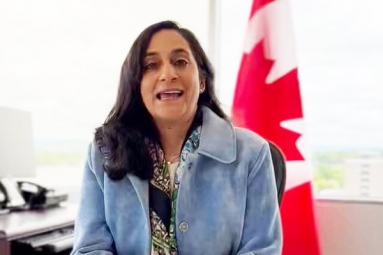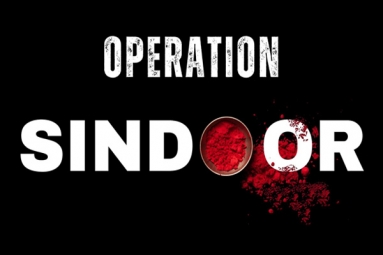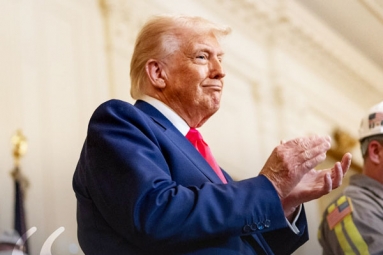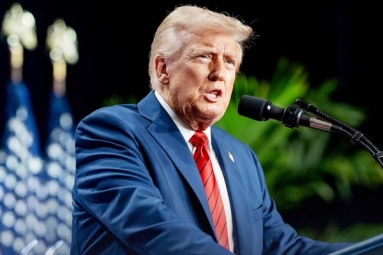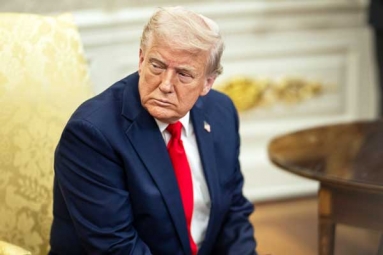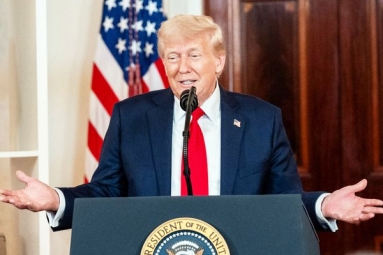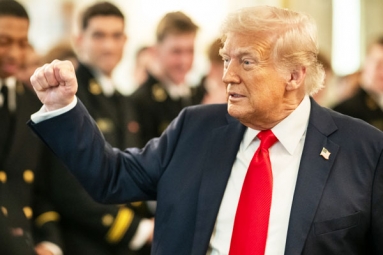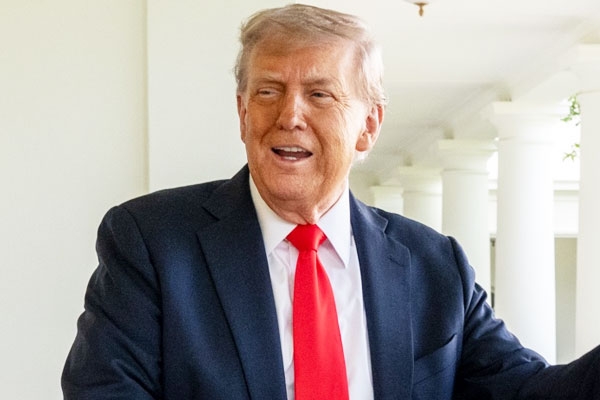
(Image source from: x.com/WhiteHouse)
On Wednesday, President Donald Trump enacted a new travel restriction affecting 12 nations, which include Afghanistan, Iran, and Yemen. This move brings back one of the most debated policies from his initial presidency. He attributed this decision to a recent attack involving a makeshift flamethrower on a Jewish demonstration in Colorado, which authorities contended was carried out by an individual they claimed was illegally residing in the United States. The travel ban encompasses citizens from Afghanistan, Myanmar, Chad, the Republic of the Congo, Equatorial Guinea, Eritrea, Haiti, Iran, Libya, Somalia, Sudan, and Yemen. Additionally, a partial ban on visitors from seven other nations—Burundi, Cuba, Laos, Sierra Leone, Togo, Turkmenistan, and Venezuela—was implemented. According to the White House, both policies will come into force on Monday.
In a video address from the Oval Office shared on social media platform X, Trump stated that the recent terrorist incident in Boulder, Colorado highlighted the severe risks associated with allowing foreign nationals who lack thorough vetting into the country, declaring, "We don’t want them." He drew parallels between this new ban and the "powerful" restrictions he enforced during his first term on predominantly Muslim nations, which created significant disruption in global travel. The president contended that the 2017 restrictions had effectively prevented the United States from experiencing the same terrorist attacks that occurred in Europe. "We will not let what happened in Europe happen in America," Trump emphasized. "We cannot allow unrestricted immigration from nations where we cannot ensure proper vetting and screening. That is why today I am signing a new executive order that imposes travel bans on countries such as Yemen, Somalia, Haiti, Libya, and several others."
Diosdado Cabello, Venezuela's Interior Minister, responded to the announcement by warning citizens against traveling to the United States, stating that residing there poses significant risks, not only for Venezuelans. Nevertheless, Trump's updated travel restrictions could encounter legal hurdles, similar to other bold initiatives he has pursued since returning to office. The announcement of the new ban was made unexpectedly by the White House, shortly after Trump had spoken to around 3,000 political appointees from a balcony during a "summer soiree."
It was also notable that Trump made this declaration without the presence of reporters, a departure from his usual practice of revealing major policy changes during signing ceremonies with journalists in the Oval Office. Speculation regarding a forthcoming travel ban had emerged following the Colorado attack, as his administration committed to targeting "terrorists" residing in the U.S. on visas. The alleged assailant, Mohammed Sabry Soliman, reportedly launched fire bombs and sprayed flammable gasoline at attendees of a gathering supporting Israeli hostages held by Hamas. Officials from U.S. Homeland Security indicated that Soliman was in the country unlawfully, having overstayed his tourist visa, although he had filed for asylum in September 2022.
White House Deputy Press Secretary Abigail Jackson expressed on X that "President Trump is delivering on his commitment to safeguard Americans from hazardous foreign individuals seeking to enter our nation and harm us."
The restrictions based on common sense are tailored to individual countries and pertain to regions that either lack adequate vetting processes, have elevated rates of visa overstays, or do not provide essential identity and threat information. In his proclamation, Trump outlined detailed justifications for the inclusion of each nation, asserting that the objective is to safeguard the United States from threats posed by "foreign terrorists and other national security" concerns.
For Afghanistan, governed by the Taliban, as well as conflict-ridden Libya, Sudan, Somalia, and Yemen, the proclamation indicated a deficiency of "competent" central authorities responsible for the issuance of passports and conducting vetting. Furthermore, Yemen, where U.S. forces have engaged Iranian-supported Huthi insurgents, was highlighted as a location of ongoing U.S. military operations. The order also listed Iran, an entity with which the U.S. is currently negotiating a potential nuclear agreement, characterizing it as a "state sponsor of terrorism." In the case of various other nations, Trump’s directive noted a higher-than-average probability that individuals would exceed the duration of their visas. Additionally, on Wednesday, Trump declared a ban on visas for international students poised to start their studies at Harvard University, intensifying his efforts to target what he perceives as a stronghold of liberal thought.



